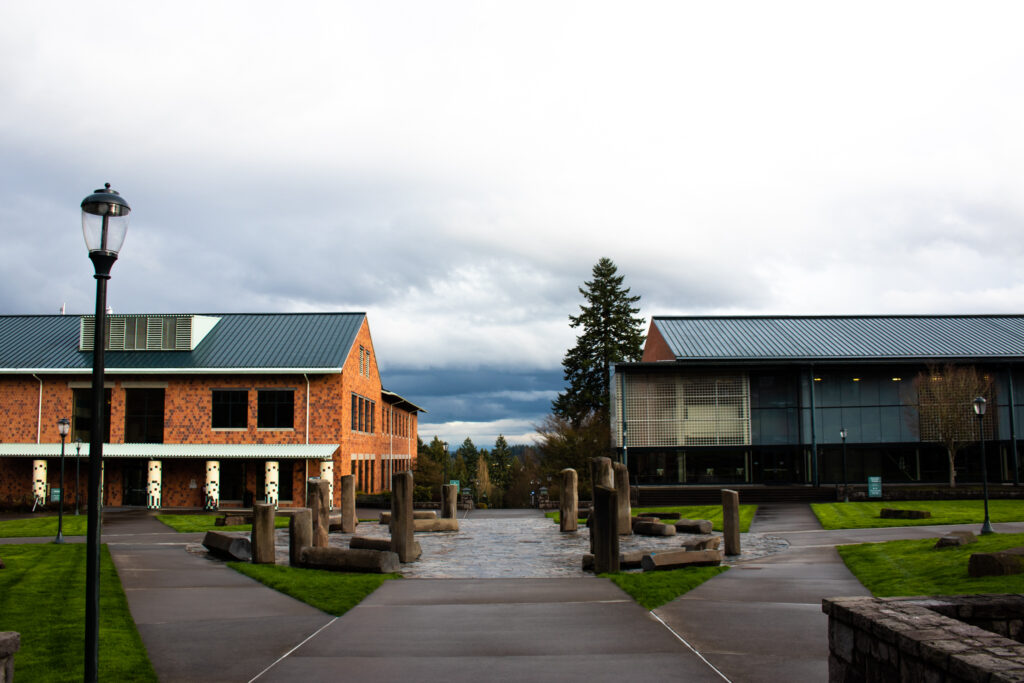Universities everywhere have faced major implications due to the COVID-19 pandemic. With WSU Vancouver’s final decision to transition fully online, students will continue to learn through distance delivery instruction this fall semester. Chancellor Mel Netzhammer and his cabinet gathered over Zoom on July 27 to address questions about their plan to operate classes online in order to preserve the safety of all staff and students.
Previously on July 14, Netzhammer hosted a campus conversation in hopes for students to attend classes face-to-face while adhering to safety protocols mandated by the state of Washington. However, due to rising COVID-19 cases and an overarching decision made by the WSU system, Netzhammer stated it was best WSU Vancouver continues with online instruction for the upcoming semester.
“Throughout all of our conversations since March, safety has been a priority. Safety for our students, faculty and staff.” Netzhammer said. “It became clear to us that for safety reasons under the spirit of the governor’s order, under what was happening in Southwest Washington in terms of infection rates, that the safer thing for our campus would be to join all the campuses of WSU [by] going to distance delivery in the fall semester.”
As the cabinet answered questions related to fall semester, The VanCougar has compiled a list of topics addressed during the conversation.

(Olivia Eldredge / The VanCougar)
Q: What will happen with WSU Vancouver’s tuition and fees when moving away from in-person instruction?
A: Chancellor Netzhammer explained two general narratives people seem to perceive about the effectiveness and cost of online classes. First, the experience students are paying for will be different from in-person instruction and the price of tuition should reflect that. Second, online education should be cheaper to deliver. Netzhammer said he recognizes the cost of tuition can be seen as problematic. But he explained there will be an increase of expenses toward professional development for staff and investments in bulk technology, such as cameras for classrooms and Wi-Fi hotspots for students who don’t have access to Wi-Fi at home.
“So the first narrative I agree with. I think given we are in the midst of a pandemic, the education we are going to be providing is going to be different than the mode of delivery any of our students or our faculty, staff and administration expected. . . . The narrative that online education is cheaper to deliver, that one I do not think is accurate. Some distanced delivery is cheaper to deliver, but for us, over 80% of our expenses are [for] personnel, for our faculty members and staff members. Those positions don’t change.” Netzhammer said. “I would say that, if anything, the costs moving into fall semester are greater.”
Q: How will classes be delivered this semester?
A: Renny Christopher, vice chancellor for academic affairs, explained some classes may be marked with a Distance Delivery tag (DD), where regularly scheduled Zoom meetings are held each week. There is also another class option where professors may offer a hybrid mix of independent study and Zoom meetings. Labs will be offered remotely too, causing professors to get creative with the way they teach. Despite courses having different modes of delivery, Christopher said flexibility is the main focus.
“We are continuing to convey to faculty, what we are hearing from students is that they need to have flexibility to manage the lives they are living, now under a pandemic. We are going to continue to convey that message. … So even for classes that do have regularly scheduled Zoom meetings, we hope there will be ways students can manage their lives and their classes,” Christopher said.
Q: How will the laptop loaner program work?
A: Michael Stamper, campus chief information officer, explained the loaner laptop program is still available for students to check out laptops or Chromebooks from the library for use at home. The student WiFi Hotspot Program is active as well and Stamper encouraged students to visit the library website and hotspot application site to apply.
Q: How will parking permits be addressed?
A: Parking permit sales will be delayed until Aug. 10. Lynn Valenter, vice chancellor for finance and operations, said there will be lower cost permits for those who still need to park on campus. Other options include 30-minute courtesy parking spots, two-hour meters and daily permits in the blue lot. Patrolling the campus parking lot will continue, and parking ticket information
can be found on the parking services website.
During the conversation, more specific questions were addressed and according to Netzhammer, the COVID-19 Campus Conversation recording and transcription will be available for public access at a later date. Netzhammer’s cabinet contributed a link to the Proclamation by the Governor, Amending Proclamations 20-05 and 20-12 and encouraged students to view the expected campus safety protocols for Washington state. Links to the WSU COVID-19 communication website were provided for students, staff and faculty to visit as well.
Despite the changes coming to WSU Vancouver this fall semester, students can expect to attend classes online on Aug. 24.

Olivia is a senior studying English at WSU Vancouver.
